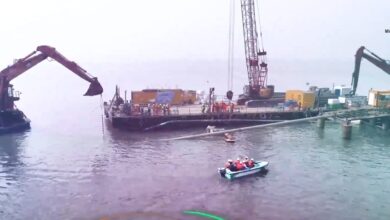NTPC Vidyut Vyapar Nigam Limited And Haryana Government Sign MoU To Set Up Green Coal Plants
The green coal plants will be set up in Bandhwari, Gurugram, and Motuka, Faridabad, at a cost of around Rs. 500 crore each

By Jag Mohan Thaken
Taking a major step towards waste management in Haryana, waste-to-charcoal plants, also known as green coal plants, will be established in the state with the support of the central government. This project will be the first of its kind green initiative and will be set up in Faridabad and Gurugram.
On Saturday, an MoU was signed between NTPC Vidyut Vyapar Nigam Limited (NVVNL), a wholly-owned subsidiary of NTPC Limited, and the Municipal Corporations of Gurugram and Faridabad in the presence of Union Minister, Manohar Lal Khattar, Chief Minister, Nayab Singh Saini, and Minister of State for Urban Local Bodies, Subhash Sudha.
The MoU was signed by A.Mona Sreenivas, Commissioner, Municipal Corporation Faridabad, Narhari Singh Banger, Commissioner, Municipal Corporation Gurugram, and Renu Narang, CEO of NVVNL.
Expressing his pleasure on the event, Union Minister, Manohar Lal Khattar expressed, “Pleased to announce that an MoU was signed between NTPC Vidyut Vyapar Nigam Ltd. (NVVNL) & Municipal Corporation of Gurugram & Faridabad for setting up waste-to-energy plants in the presence of Hon’ble CM, Haryana Shri Nayab Saini.”
Mr. Khattar added in his ‘X’ post, “Underlining the need to make our cities Garbage Free, the thrust on sustainable solid waste management has been strengthened under the ambit of Swachh Bharat Mission-Urban 2.0.”
Speaking on this occasion, Chief Minister, Nayab Singh Saini said that today is a very important day for Haryana as an MoU has been signed for setting up plants to produce green charcoal. According to the agreement, NTPC Vidyut Vyapar Nigam Limited (NVVNL), a fully-owned subsidiary of NTPC Limited, will establish waste-to-charcoal plants in Gurugram and Faridabad under the Atmanirbhar Bharat campaign of the Government of India, he said.
The Chief Minister said that green coal plants will be set up in Bandhwari, Gurugram, and Motuka, Faridabad, at a cost of around Rs. 500 crore each. These plants will convert 1500 tonnes of waste collected daily from Gurugram and Faridabad into charcoal. The Municipal Corporations of Gurugram and Faridabad will provide 20 acres of land each for these plants. NTPC will soon take possession of the land and start setting up the plants, which are expected to be completed in about 30 months. These plants will be based entirely on indigenous technology.
Nayab Singh Saini said that the establishment of these plants will significantly contribute to the realisation of Prime Minister, Narendra Modi’s Swachh Bharat campaign, making Gurugram and Faridabad garbage-free. In the future, the cities will be free from waste heaps. He said that the waste-to-green coal plants in Gurugram and Faridabad will not only provide a permanent solution to the waste problem but will also increase energy production. This torrefied charcoal will be used in power generation plants, reducing the use of mineral coal. He stated that this effort will play a crucial role in significantly enhancing urban cleanliness and promoting environmental sustainability in Gurugram and Faridabad, said the Chief Minister.
Earlier, Commissioner and Secretary, Urban Local Bodies Department, Vikas Gupta said that with the increasing urbanization, the generation of waste is also continuously rising, making waste disposal a major challenge in cities. To address this problem, we have initiated this step with NVVNL under the guidance of the Chief Minister. The setting up of these plants in Gurugram and Faridabad will strengthen waste management, he said.
CEO of NVVNL, Smt. Renu Narang while providing detailed information about the waste-to-charcoal plants said that currently, NTPC is operating a plant in Varanasi that produces charcoal from 600 tonnes of waste daily. However, the two plants to be established in Haryana will be the largest in India, producing charcoal from 1500 tonnes of waste daily. After their success, this technology will be considered for implementation in other cities, she said.
This initiative aims to implement efficient waste management strategies, including better collection, recycling, and disposal methods. The partnership focuses on exchanging knowledge among stakeholders involved in solid waste management and empowering officials and professionals with expertise and tools to create a clean and healthy urban environment for local residents.




